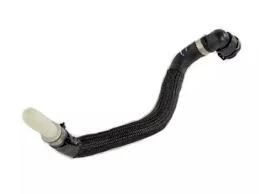diesel fuel transfer hose
វិច្ឆិកា . 02, 2024 04:46 Back to list
diesel fuel transfer hose
The Importance of Diesel Fuel Transfer Hoses
In the world of industrial operations, efficiency and safety are paramount. One critical component of fuel management is the diesel fuel transfer hose. These hoses are essential for transporting diesel fuel from storage tanks to machinery or vehicles, playing a significant role in various sectors, including agriculture, construction, and transportation. Understanding the features and importance of diesel fuel transfer hoses can help ensure that operations run smoothly and safely.
Design and Material
Diesel fuel transfer hoses are specifically designed to withstand the unique properties of diesel fuel, which can be corrosive and affect the integrity of materials. Typically made from materials like rubber or thermoplastic, these hoses are reinforced with steel wire or other materials to provide added durability and flexibility. Their design allows for easy maneuverability, which is crucial when transferring fuel in tight or awkward spaces. Additionally, many fuel transfer hoses come with a safety factor built into their design, allowing them to handle the pressures associated with pumping diesel fuel.
Safety Features
Safety is a major consideration when dealing with flammable liquids. Diesel fuel transfer hoses are designed with several safety features to mitigate risks. Many hoses come equipped with fittings that prevent leaks and spills, which are critical for environmental protection and complying with regulations. Furthermore, some hoses incorporate anti-static properties to prevent static buildup, which could lead to sparks and potentially catastrophic fires during fuel transfer operations.
diesel fuel transfer hose

Compatibility and Standards
Another crucial aspect of diesel fuel transfer hoses is their compatibility with different fuels and adherence to industry standards. Vulcanized rubber hoses, for example, are commonly used for diesel because they are resistant to the fuel’s chemical effects. It's vital for users to choose a hose that meets the necessary standards, such as those set by the American Petroleum Institute (API) and Underwriters Laboratories (UL). These certifications ensure that the hose has been tested for quality and reliability, minimizing the risk of equipment failure.
Maintenance and Lifespan
Routine maintenance of diesel fuel transfer hoses is essential for longevity and performance. Regular inspections should focus on checking for signs of wear, such as cracks, abrasions, or kinks. It's also important to ensure that the connections and fittings are secure to avoid leaks. Proper storage is equally important; hoses should be kept out of direct sunlight and extreme temperatures to prolong their life. Depending on usage and maintenance practices, a well-cared-for diesel fuel transfer hose can last several years.
Conclusion
In conclusion, diesel fuel transfer hoses play a vital role in the safe and efficient movement of diesel fuel across various industries. Their specialized design, safety features, and adherence to standards ensure that the transfer process is as risk-free as possible. By prioritizing the right equipment and regular maintenance, businesses can enhance operational efficiency while adhering to safety regulations. Investing in high-quality diesel fuel transfer hoses is not merely a matter of convenience; it is essential for ensuring the safety of workers and the environment. Proper selection and care of these hoses will ultimately lead to greater reliability and peace of mind in fuel management operations.
